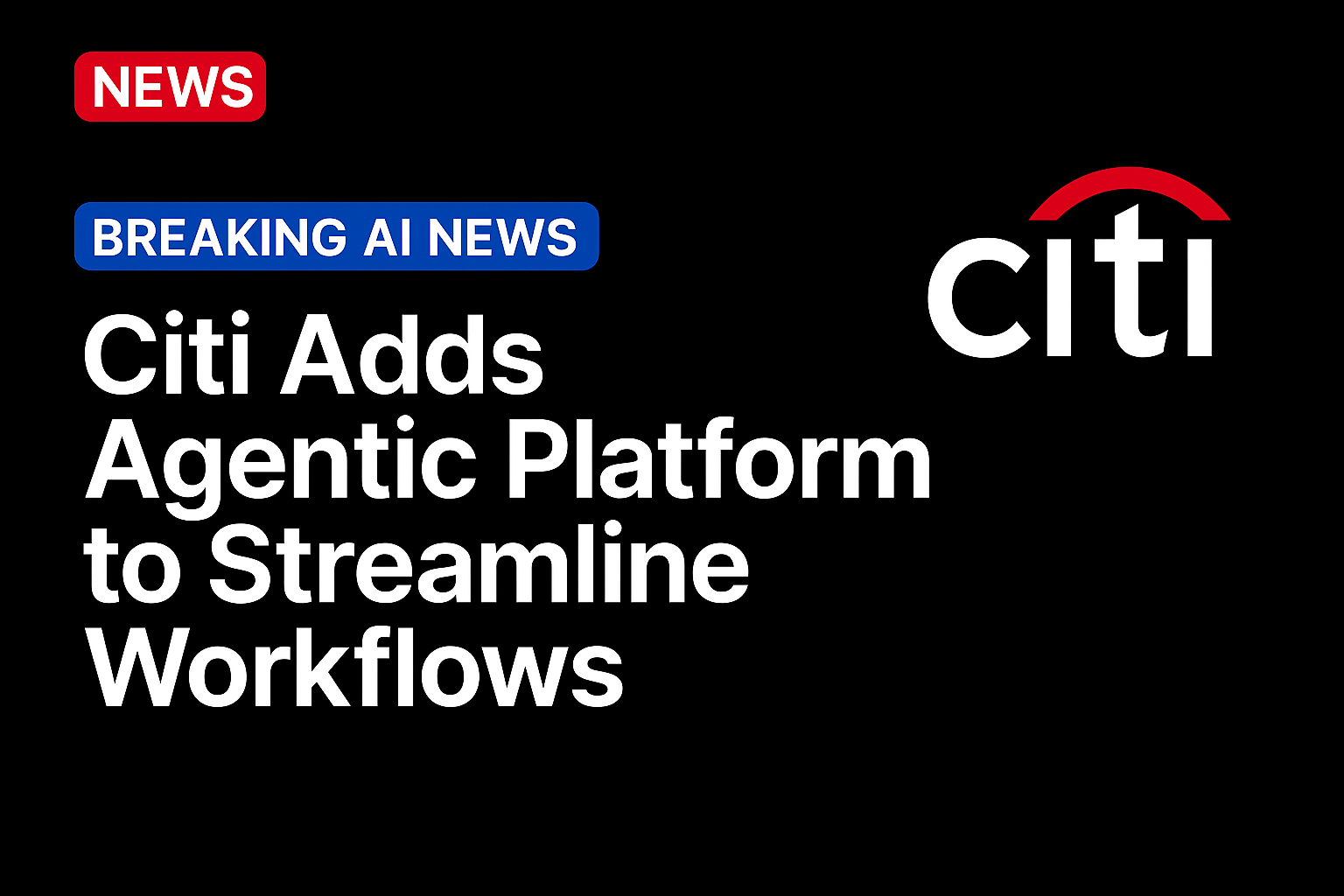
Citigroup has launched an upgraded version of its internal artificial intelligence platform, Citi Stylus Workspaces, which now includes agentic AI capabilities intended to help employees complete complex, multi-step tasks more efficiently, according to a Monday (Sept. 22) news release.
The new upgrade allows users to compress what would previously take several manual steps across different tools into a single prompt, per the release. The launch is part of a broader push to boost productivity and manage rising costs.
The tools now integrate more deeply with Citi’s internal systems, including its global employee directory, project management platforms, and internal data sources, while also leveraging web search and analysis. As one example cited in the announcement, Citi Stylus Workspaces can now identify the top five U.S. branded cards businesses, analyze their strategic goals and translate the insights into Spanish, all via one user prompt.
Citi’s deployment signals how banks are absorbing those economics through in-house platforms that maximize existing infrastructure and reduce reliance on costly external integrations. Citi says the rollout of the upgraded platform begins this month, giving thousands of employees early access, followed by broader deployment across its global operations. The bank is also launching training programs to help employees adopt and get the most out of the new features.
As PYMNTS has reported, workforce readiness is now as important as model performance in AI rollouts, with adoption often slowed by change-management challenges.
“Most chief financial officers (CFOs) say they understand the concept of agentic artificial intelligence — systems that can plan, reason and take actions with minimal or no human input — but few are ready to implement the technology,” PYMNTS reported in August. “According to a July 2025 PYMNTS Intelligence report, nearly all CFOs polled were aware of agentic AI, yet only 15% expressed interest in deploying it within their organizations. The gap reflects lingering skepticism among business leaders about the maturity and business value of artificial intelligence agents in their current form. While the technology holds promise for automating complex workflows and improving decision-making, many remain cautious amid concerns about implementation risks, oversight challenges and unproven ROI.”
Rivals are not standing still. Goldman Sachs has experimented with AI copilots for deal teams, while Bank of America has expanded Erica, its AI-driven customer assistant, into more back-office workflows. JPMorgan has embedded AI copilots into risk and compliance functions, underscoring how agentic systems are moving deeper into core operations.
By positioning Stylus Workspaces as both a productivity engine and a cost-management tool, Citi aims to get ahead in what PYMNTS has called the “arms race of applied AI” in finance.
Source: https://www.pymnts.com/

